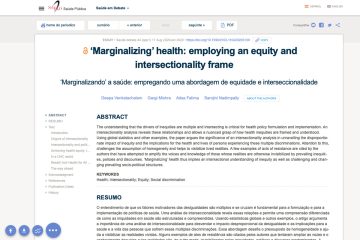People with sickle cell disease face damaging stigma

Stigma and bias erode wellbeing and exacerbate psychological harm, particularly for people from marginalised communities, especially women. Many with the disease are reluctant to reveal their status because of concerns about prejudice and criticism, often choosing to live in secrecy. Continue reading




